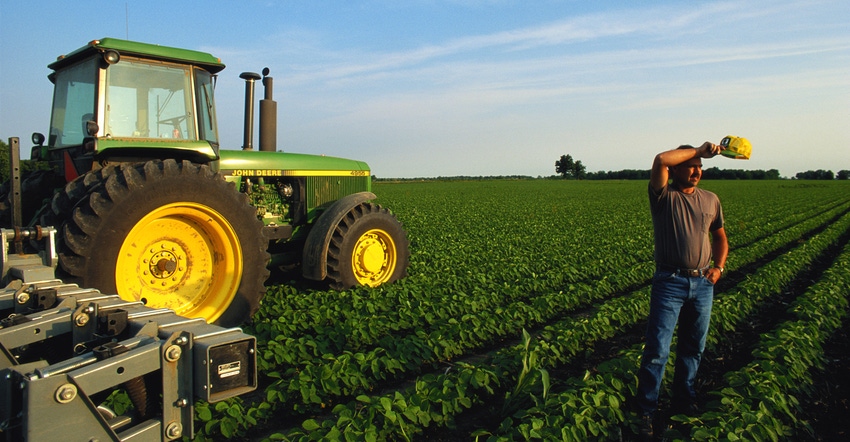March 24, 2022

Leasing is one of the most important tools every farmer and rancher should have in their financial toolbox. From cash preservation in uncertain times, to the tax advantages of accelerated write-off, leasing offers an option to help expand a farming operation in the near term while planning for transition to future generations in the long term.
To provide growers with the latest information and expertise on agricultural leasing, GreenStone Farm Credit Services has partnered with CoBank Farm Credit Leasing, a member of the Farm Credit System and one of the largest providers of lease financing to rural America. Through this partnership, GFCS is offering flexible lease payment structures on equipment, vehicles, packaging and processing lines, as well as all types of agricultural facilities, including: machine sheds, grain storage, livestock and dairy buildings, greenhouses and farm shops.
GreenStone’s partnership with CoBank Farm Credit Leasing also brings to the table decades of experience in structuring leases for more unique assets, such as solar arrays and commercial buildings. Leasing these types of assets can provide tremendous tax advantages. Farmers considering a solar array to save on their electric bill may benefit from a lease where the tax credits are passed back in the form of a low or negative lease rate, making the total cost to own less than the acquisition cost. Similarly, with a properly structured commercial building lease, farmers can accelerate the write-off of a 39.5-year property in seven or 10 years.
Whether looking to upgrade equipment or expand a current operation, there are some key things to think about when considering whether to buy or lease your next agricultural asset.
Tax advantages
Leasing offers a variety of tax advantages. Not only may lease payments be fully deductible, but expensing lease payments over the term may reduce taxable income. Leasing a 20-year property, like a pole barn, allows the farmer to write off 70% to 80% of the facility in five to seven years instead of 20 years. In addition, writing off the payments over the course of the lease provides for level deductions that enable a farmer to plan for annual write-offs rather than taking depreciation in a lump sum with limited write-offs in future years.
Tax rules can change every year. By using a lease, a farmer can know exactly what expenses to plan for over a longer period. As every farmer knows, it’s best to take the tax advantages when you have the opportunity.
Estate planning
Beyond the tax advantages of payment deductibility, leasing also is a key tool to consider when planning for the transition of a farming operation to the next generation. With all the uncertainty around potential changes in estate taxes and the corporate tax rate, it is a good time to consider leasing. It’s important to note that leasing allows farmers to seamlessly transfer leased assets to the next generation — keeping the assets out of the estate and offering tax benefits. At the end of the lease, when the residual comes due, the next generation can purchase the assets for the residual amount, and ownership of the assets transfers directly from the leasing company to the next generation. This offers a tax advantage for future generations.
Preserve working capital
Sometimes farmers or businesses may not have the cash on hand for a loan down payment; or even if they do, they may want to use the capital elsewhere. With a lease, farmers can preserve working capital and save money for other expenses. Leasing can provide 100% financing, with no down payment required. Often, the only cash required upfront is the first lease payment, which is significantly less than a down payment on a loan. This helps save money while still obtaining the equipment or facility needed to grow the business.
For any farm business, the real value of equipment, bins or buildings lies in using it, not owning it.
Source: GreenStone Farm Credit Services, which is solely responsible for the information provided and is wholly owned by the source. Informa Business Media and all its subsidiaries are not responsible for any of the content contained in this information asset.
You May Also Like




